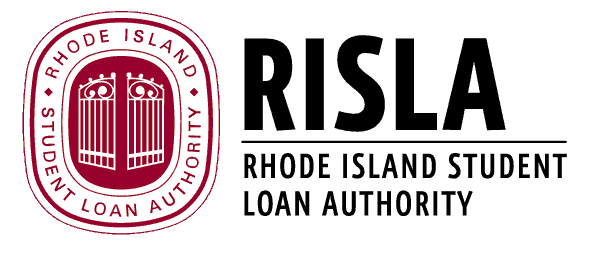A degree can open doors to new job opportunities and higher salaries. But even with the best intentions, life can simply get in the way of achieving your education goals.
According to the National Student Clearinghouse Research Center’s 2019 national report on college completion outcomes, only two-thirds of students pursuing a four-year degree completed their degree within six years. If you weren’t able to finish your degree, refinancing your student loans can be challenging — but not impossible.
Here are some options to refinance student loans without a degree.
Can you refinance student loans without a degree?
Whether you finished your degree or not, you’re required to pay back your student loans in full.
Refinancing your loans may help secure a lower interest rate and make paying back your debt easier. But in order to qualify, many refinancing lenders require you to graduate, making an already stressful situation even more difficult.
Fortunately, there are lenders that don’t require a degree, but your options are more limited.
Refinancing lenders for non-graduates
Even if you don’t hold a degree, you can still qualify for competitive interest rates. Especially if you have reliable income and a good credit history.
| Lender | Fixed | Variable | Amount | Cosigner release |
|---|---|---|---|---|
 | ✓ | ✓ | $10,000 to $300,000+ | ✓ |
 | ✓ | ✓ | $7,500 to $200,000 | ✓ |
| ✓ | ✓ | Up to $75,000 | ✓ | |
 | ✓ | $7,500 to $250,000 | ||
 | ✓ | ✓ | $5,000 to $120,000 | ✓ |
*Some rates may include autopay discounts
Should you refinance your student loans?
You may be struggling to make your monthly payments if you’re saddled with a high-interest rate or lousy loan terms. By refinancing your loans with a private lender, you can lower your interest rate and reduce your monthly payment — potentially saving you thousands of dollars over the life of your loan.
For example, let’s say you have an outstanding balance of $25,000 with an 8% interest rate. If you refinance at 4.5%, your monthly payment would drop from $303 to $259 — saving you an estimated $5,306 in interest alone.
You can use the Student Loan Planner® refinance calculator to plug-in specific loan details and see how refinancing can change your costs over time.
While there are both pros and cons of refinancing, the primary downside is that you’ll forego any protections or benefits that come with federal student loans. For example, you’ll lose forgiveness options and access to certain repayment plans. You should thoroughly weigh your options before moving forward with refinancing your federal loans.
Refinancing eligibility
While each lender has their own eligibility requirements, you’ll generally need to have attended a Title IV school and have a credit score in the 600s or higher to refinance.
You’ll also need to show that you have a stable income source and meet any additional eligibility requirements specific to the lender. For example, Citizens requires non-graduates to have made at least 12 months of consecutive, on-time payments. Whereas, PNC Bank requires 24 months before you can qualify.
If you don’t meet the lender’s preliminary qualifications, you should consider applying to refinance your student loans with a cosigner. Their credit history can boost your application, get you a lower interest rate and lock in better terms. Look for a lender that offers a cosigner release to alleviate your cosigner’s responsibility once you’ve proven you can repay your loan.

Alternative repayment options
If you’re having trouble making your student loan payments and don’t qualify for refinancing, you may benefit from choosing an income-driven repayment (IDR) plan. An IDR plan can lower your monthly payments. It can also cost you a lot more in interest over the long-run.
If your financial situation is temporary, consider exploring deferment or forbearance options that can pause on your payments while you get your finances in order. This benefit comes with federal loans, but you’ll need to speak with your private lender to determine what is available.
We can help you explore the best refinancing and repayment options to tackle your student loans. Book a student loan consult to receive a custom plan.
Refinance student loans, get a bonus in 2025
| Lender Name | Lender | Offer | Learn more |
|---|---|---|---|

|
$500 Bonus
For refinancing 100k or more (bonus from Student Loan Planner®, not SoFi®)
|
Fixed 4.49 - 9.99% APR
Variable 5.99 - 9.99% APR with all discounts with all discounts |
|

|
$1,000 Bonus
For 100k or more. $200 for 50k to $99,999
|
Fixed 4.45 - 9.89% APR
Variable 5.88 - 9.99% APR
|
|

|
$1,000 Bonus
For 100k or more. $300 for 50k to $99,999
|
Fixed 4.29 - 10.24% APPR
Variable 4.86 - 10.24% APR
|
|

|
$1,050 Bonus
For 100k+, $300 for 50k to 99k.
|
Fixed 4.99 - 8.90% APR
Variable 5.29 - 9.20% APR
|
|

|
$1,099 Bonus
For 150k+, $300 to $500 for 50k to 149k.
|
Fixed 4.88 - 8.44% APR
Variable 4.86 - 8.24% APR
|
|

|
$1,250 Bonus
For 100k+, $350 for 50k to 100k. $100 for 5k to 50k
|
Fixed 3.85 - 11.69% APR
Variable 4.35 - 12.68% APR with autopay with autopay |
Not sure what to do with your student loans?
Take our 11-question quiz to get a personalized recommendation for 2025 on whether you should pursue PSLF, SAVE or another IDR plan, or refinancing (including the one lender we think could give you the best rate).
